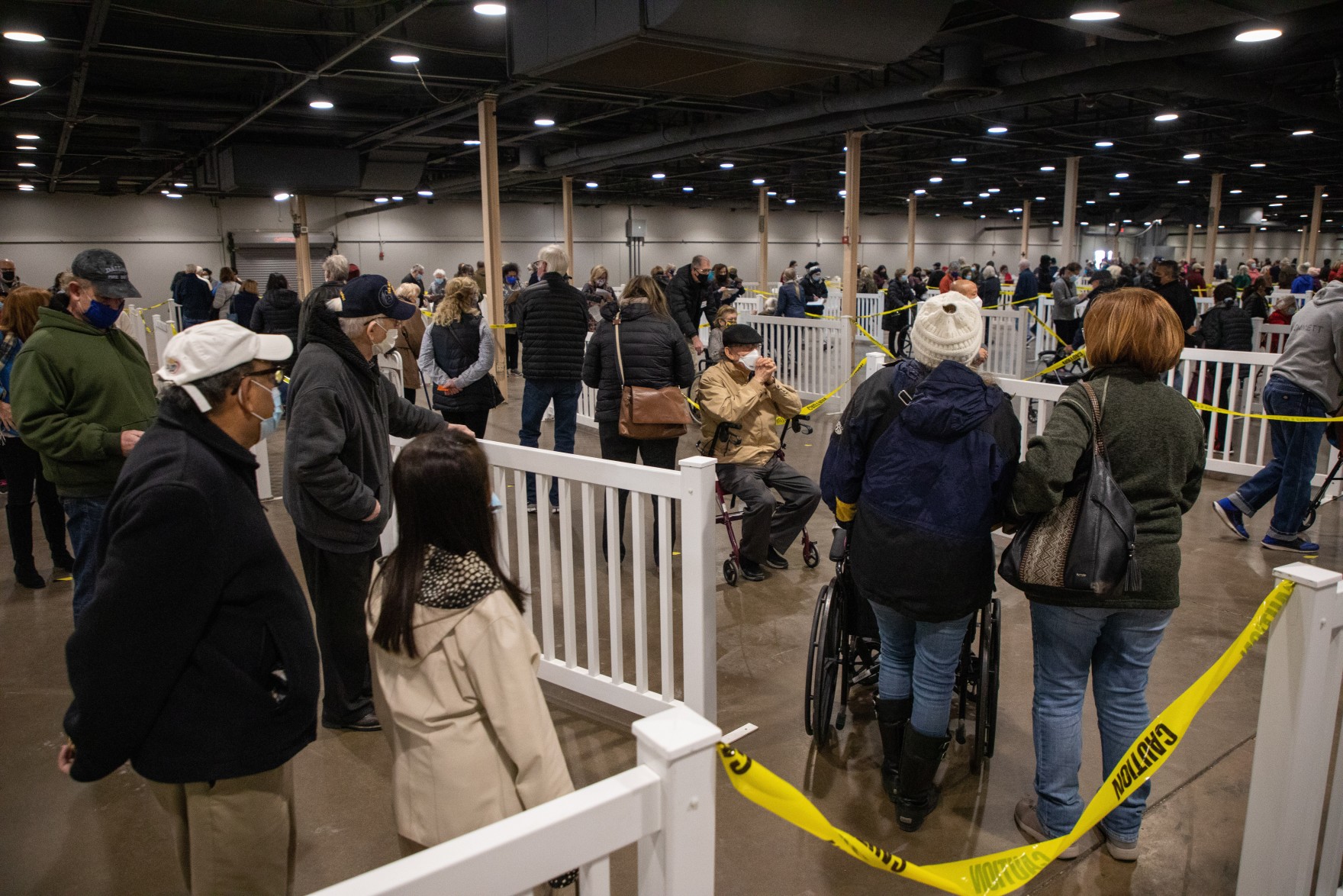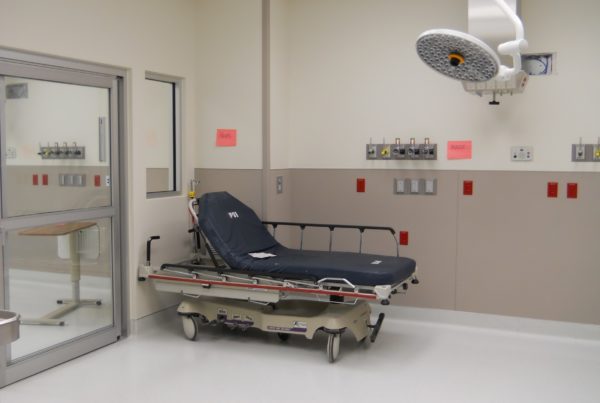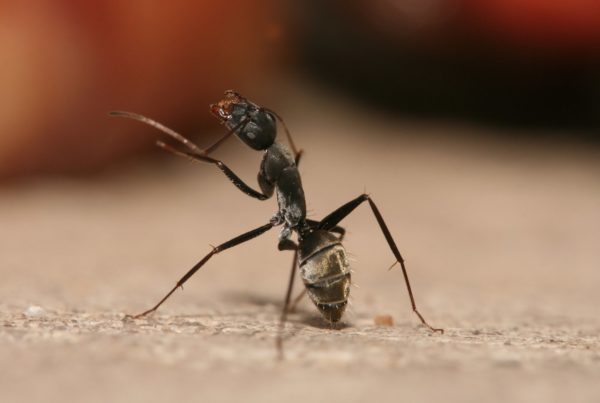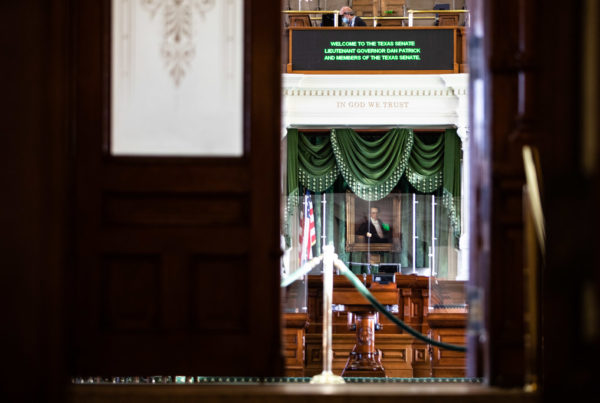Dr. Ana Rodriguez said people are willing to sit in her waiting rooms a long, long time hoping someone else skips a COVID-19 vaccine appointment.
“They sit there and they watch you for three, four, five hours to wait and see if you tell them there’s one vaccine left for them,” she said. “It is very sad.”
No-shows are exceedingly rare, according to Rodriguez, who is medical director at MD Medical Group, a private health care company.
Her experience is another example of a painful current reality: while COVID-19 vaccines are in short supply, there’s no shortage of demand. And MD Medical group operates some of the few private sites in Southern Dallas administering doses of the vaccine.
Ahead of any potential major increase in production, though, Dallas County is trying to forestall an unequal distribution of doses.
Private Health Care Disparity
Southern Dallas County has fewer private health care providers to begin with, which creates a baked-in risk that communities of color could be shortchanged as the vaccine rolls out.
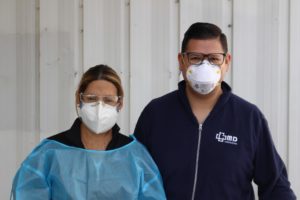
Ana Rodriguez, MD Medical Group medical director, and Cesar Garcia, director of value-based care.
Rodriguez’s colleague at MD Family, César García, is director of value-based care. He said the firm jumped in right away when the state asked health care providers if they wanted to give vaccines. They even bought two special freezers in order to distribute the Pfizer vaccine, which needs to be stored at very cold temperatures. (Although so far, they’ve only received the Moderna version.)
The company has primary care clinics in Dallas, Fort Worth, Houston, Beaumont and El Paso. In Southern Dallas, they serve a largely Latino population, and most of their patients are on Medicaid.
Other companies in Southern Dallas, Garcia said, might not have enough staff or be able to take patients without insurance.
“It comes in hand with, in the North, [there] being more hospital systems, bigger facilities that can take care of that,” he said.
Northern Dallas County has more hospitals — a disparity detailed in a 2019 report called the Community Health Needs Assessment. The disparity loomed large last spring when everyone wanted a COVID test, and the advice was often, “call your doctor.” Less health care infrastructure in Southern Dallas meant fewer places for Black and Latino residents to turn.
As it tried with testing, Dallas County is trying to make up for the disparity when it gives out its own modest supply of vaccines. It has set up large sites at Eastfield College, Ellis Davis Field House, and Fair Park to get shots into underserved Black and brown neighborhoods.
More basics of vaccine distribution can be found in this guide from KERA News.
A Rocky Start At Fair Park
On Wednesday at Fair Park, doses were limited to people over 75 years old. A quick scan of patients showed mostly white people, like Madeleine Hervey. Hervey lives near Love Field, in the northern part of the county.
Hervey had help using the designated website when she signed up for an appointment at Fair Park.
“I got a son who’s in IT,” she said. “He just went ‘Okay, Mom, I made you an appointment.”
The county planned to notify people on the waiting list when their appointment time came up, but this system had a rocky start. A technology glitch led to a surge of people at Fair Park, according to County Judge Clay Jenkins. These folks weren’t all in the highest risk group, and that added to concerns vulnerable people might get short shrift.
“The Fair Park location is there for a reason, right? The intent is to make sure that people in vulnerable areas receive the vaccine,” said Dallas City Council member Jaime Resendez at a meeting Thursday. Resendez represents District 5, which includes parts of southeast Dallas.
Then he asked, “What are we doing to ensure [that] people in Southern Dallas are being vaccinated?”
In response, County Health Director Philip Huang said confusion earlier in the week meant fewer doses were used. The county then reached out to churches and groups in underserved neighborhoods.
“There was some efforts [sic] to make sure that that diversity was represented,” Huang said. “Because when we looked at who was coming in initially … it was not as diverse as we would have liked.”
Short Supply
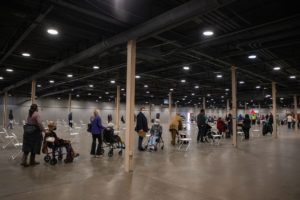
Long lines mostly comprising seniors and their caretakers form during the first day of the mega vaccine center at Fair Park, in Dallas, on Jan. 11, 2021.
Governor Greg Abbott has said the state of Texas is shifting distribution to focus more on large vaccination hubs. Hospitals in North Texas will be developing an equity “tool” as they serve their own patients with whatever doses they get, according to both Jenkins and the Dallas Fort Worth Hospital Council.
As these plans come together, companies like MD Medical are saying the issue is simply supply.
“The key is more vaccines,” said Rodriguez. “More vaccines so we can vaccinate the whole public and we can just get this over with and start living our lives.”
Got a tip? Email Bret Jaspers at bjaspers@kera.org. You can follow Bret on Twitter @bretjaspers.


